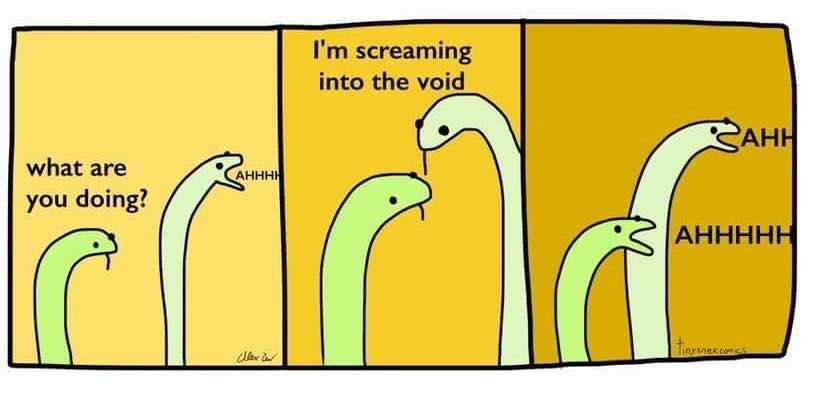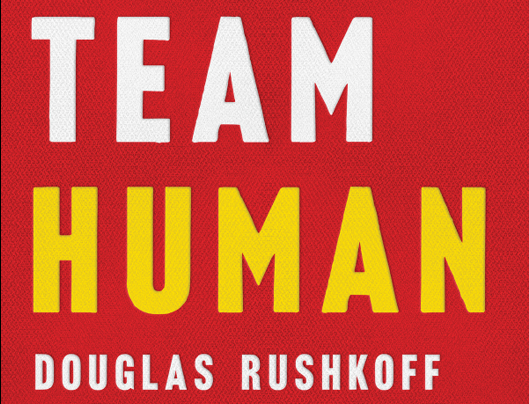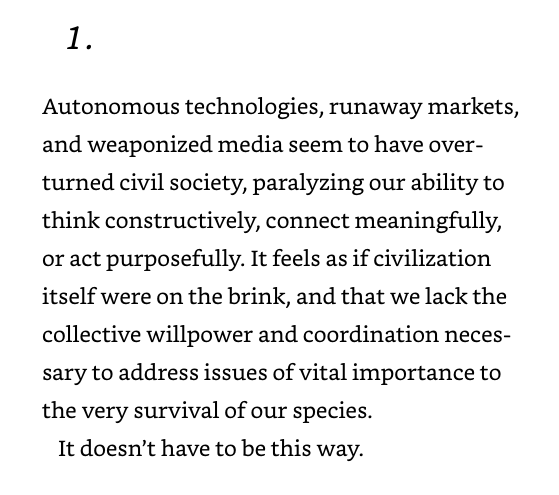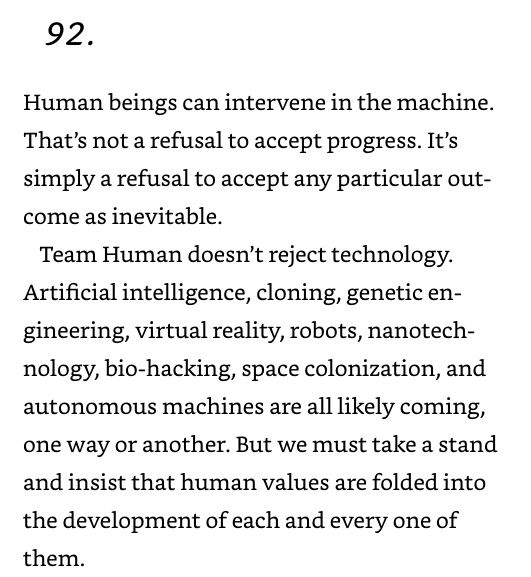Talk given to the Radical Open Access 2 Conference in Coventry, 27 June 2018 as part of a panel on the commons and care. The talk was published as part of a pamphlet alongside pieces by Joe Deville and Tahani Nadim: https://hcommons.org/deposits/item/hc:19817/
Introduction
‘The commons’ is a term routinely employed by advocates of open access publishing to describe the ideal scholarly publishing ecosystem, one comprised entirely of freely available journal articles, books, data and code. Usually undefined, advocates invoke the commons as a good-in-itself, governed by the scholarly community and publicly accessible to all. The term itself is not associated with an identifiable politico-economic ideology, nor does it entail any particular form of organisation or practice. Without further justification, the term ‘commons’ has little meaning beyond referring to the various degrees of community control and/or accessibility associated with certain resources.
This paper will illustrate some of the uses (and abuses) of the commons in scholarly publishing, aiming to highlight both the ambiguity of the term and some of the drawbacks of treating the commons as fixed and static entity focused on the production and management of shared resources, as many do. While it certainly relates to resources and their governance, I want to reposition the commons – or ‘commoning’ specifically – as a practice of cultivating and caring for the relationships that exist around the production of shared resources. In reorienting the commons in this way, I will show how an attitude of commoning extends beyond the commons site itself and into the relationships present in other forms of organisation also. This allows us to reposition the commons towards a shared, emancipatory horizon while maintaining the need for a plurality of commons-based practices in publishing and beyond. A progressive and emancipatory commons, I argue, is therefore a space of ‘care-full commoning’.
The use and abuse of the commons
Many uses of the term commons in scholarly communications are themselves ill-defined and intend to evoke a kind of participatory, inclusive or freely accessible resource. This lack of definition may be due to the popularity of the term and its deployment in the media to describe generic ‘shared resources’, everything from Facebook (Gapper 2017) to Bicycle Rental schemes (Rushe 2017). Here, ‘the commons’ refers to resources created through purely capitalist modes of organisation that either result in freely accessible services (Facebook) or utilise public space (dockless bikes). The tragedy of each one, the authors argue, is that they are exploitable by ‘bad actors’ such as vandals or fascists, what the Financial Times journalist terms ‘polluters of common resources’ (Gapper 2017). In neither case are the companies being described as commons actually governed by the users of their service, but rather it is their perceived accessibility that leads to their exploitation. There are numerous examples of uncritical and unspecific uses of ‘commons’ like this that position the commons as a resource that has a publicly-accessible dimension to it, irrespective of its governance structures or the interactions and relationships it fosters.
A similar usage of commons terminology is on display in scholarly communications too. Digital Commons is the name given to Bepress’s flagship suite of repository and journal-hosting software. Bepress is a for-profit company, recently acquired by Elsevier, that sells publishing products to universities. There is nothing about the Digital Commons service that entails collective governance of its infrastructures or common ownership of its outputs. As part of the shareholder-managed conglomerate Elsevier, Bepress is one component in a proprietary walled garden of services designed to lock-in users and monetise their analytics and interaction data (Schonfeld 2017). The ‘commons’ in Digital Commons simply refers to a portfolio of publishing products in which many (but by no means all) of the publications on the platform are publicly accessible at no charge.
The vague and ill-defined nature of the commons allows corporations to utilise commons terminology to imply that a resource is under the control of a scholarly community rather than the company itself. This trick is only achievable because of the association between the commons and open access resources, which are interchangeable in much of the discourse on open access. In this regard, Bepress can assert their products as promoting a progressive ecosystem of freely accessible resources, even while they profit off the labour of those who produce them. But the commons is not just a resource, as Carlo Vercellone explains, but a mode of production whose basis can be identified in the ‘self-management of the organisation of labour and in the non-appropriability of the main tools of production’ (Vercellone n.d.). Focusing on the resource itself, rather than how it is produced and maintained according to democratic self-management, is likely to permit this kind of corporate capture.
The commons is not (just) a resource
The commons is not a freely accessible resource, then, but a way of producing and managing shared resources. This was the word’s original medieval meaning as used to refer to a particular form of English land. The historian Katrina Navickas explains that land commons in England and Wales were always privately owned, but that local residents (commoners) were granted certain rights of use and access by the lord of the manor (Navickas 2018). This meant that the commons were neither commonly owned nor even publicly accessible, but instead were only available to local commoners for grazing cattle, collecting fuel, wood etc. The commons did not originally entail any form of open, public access to a resource but simply refers to the collective management of certain private lands.
The conflation of open access publishing with the commons is likely based on the association of open access with open-source software and free culture. The early web played host to an array of DIY, participatory cultures of production that resulted in free digital outputs. Consequently, freely available digital resources have acquired a mythical association with participatory and commons-based forms of production, even if their forms of production are firmly embedded in capitalism. One such example of this is the Creative Commons (CC) organisation and their suite of copyright licenses for making research freely available in accordance with conditions on reuse and modifiability.
Creative Commons produces literature (e.g., Stacey and Pearson 2017) framing CC-licensed outputs as alternatives to private- or state-owned creative/scholarly works, claiming that ‘the commons sees resources as common goods, providing a common wealth extending beyond state boundaries, to be passed on in undiminished or enhanced form to future generations’ (ibid). References to the ‘values and norms’ of commoning enhance this rhetoric and affirm CC’s commitment to a new way of operating beyond market and state. Yet, despite its name and ostensible commitment to commons ideals, Creative Commons merely reflects ordinary intellectual property norms and relations. CC licenses simply designate how a proprietary work can be used; it does not confer ownership of a work to a collective or abandon the idea of private ownership of digital works altogether, nor does it entail that the means of production themselves are in common ownership. Instead, Creative Commons reinforces a private and individualist understanding of intellectual property, and the social hierarchies this entails, especially the association of published scholarship with private property that can be used as a currency for individual career progression within the university.
Creative Commons’ position on intellectual property is reflective of their broader commitment to liberal individualism and private property relations. Lawrence Lessig, one of the organisation’s founders, writes in his book on free culture that: ‘[the] free culture I defend in this book is a balance between anarchy and control. A free culture, like a free market, is filled with property. It is filled with rules of property and contract that get enforced by the state.’ (Lessig 2004, xvi). Lessig sees Creative Commons as a set of resources operating within a capitalist economy that rely on free culture to enhance and improve the business prospects of those who share. This individualism is not only reflected in the attribution requirement for CC-licensed works, which positions the work as sole property of its creator, but it is also noticeable in much of Creative Commons’ framing of the benefits of CC-licensing to the creators, for example: ‘the fact that the name of the creator follows a CC-licensed work makes the licenses an important means to develop a reputation or, in corporate speak, a brand’ (Stacey and Pearson 2017). Creative Commons therefore utilises both the language of progressive politics mixed with the business-friendly hallmarks of branding and innovation.
Despite its influence in scholarly publishing, Creative Commons’ understanding of the ‘commons’ lacks any real meaning as a commons. Not only is CC-licensed work not common property, unlike movements that reject copyright in favour of the public domain, common- or non-ownership, it also says nothing about the ways in which the creative work was brought into being: the labour involved, the profits taken and the governance of such efforts. In order to represent a truly scholar-owned commons, the governance and/or ownership of the publication processes themselves have to at least be taken into account, not just the accessibility of digital resources.
Discussing the commons more generally, Massimo De Angelis writes: ‘The problematising of commons within a project of emancipation thus must not simply rely on lists of isolated objects [emphasis added], but must open up to the internal relations among the components of these lists and the respective commoning’ (De Angelis 2017, 67). When describing something as a commons, then, one should not just refer to the resource itself but look instead to the structures around how it is produced, reproduced and organised. This is why, as De Angelis and Stavrides highlight, a holistic understanding of the commons includes an appreciation of not just the resource (or ‘pooled resources’), but its users (‘the commoners’) and the relationships and practices involved in its maintenance and access (‘commoning’) (De Angelis and Stavrides 2010). Definitions of the commons as a resource are limited because they fail to take into account the informal practices and social relations involved between commoners. From the perspective of an emancipatory commons struggle, I will argue, it is more important to focus on commons praxis than the resource itself.
The commons as a practice
The commons is not just a series of ‘isolated objects’ but refers to the social praxis involved within and across different forms of commons organisation. It is therefore a practice focused on the relationships involved in various forms of production, rather than exclusively (or even primarily) on the resource itself. For some commons theorists such as Elinor Ostrom it is the formalised governance practices that determine these relationships. Ostrom’s Institutional Analysis and Development (IAD) Framework is one way of determining how a particular common resource is created, managed and maintained (Hess and Ostrom 2007). This framework relies on extrapolating the best rules of maintenance and access from the resource in question, presupposing a rational, consensus-building approach to the commons.
However, Ostrom’s approach to commons governance is liberal and exclusionary, treating subjects in a political vacuum rather than embedded in a particular situation and entangled in a number of different relationships and projects with asymmetrical power structures. Patrick Bresnihan argues the liberal approach to commoning fails to appreciate this attachment or ‘entangled subjectivity’ and instead treats participants in a commons as ‘calculating, liberal (human) subject[s] separated from a world of other liberal subjects and discrete, measurable (non-human) resources’ (Bresnihan 2016, 7). A similar point is made by Fred Saunders who argues that the conception of a ‘rational resource user’ in the commons fails to adequately account for a ‘meaningful consideration of local norms, values and interests in commons projects’ (Saunders 2014).
Indeed, any such ‘neutral’ approach to a commons, especially one that is agnostic (and therefore tacitly favourable) towards commercial organisations, will strive to homogenise local conditions that favour the business over the commoners. Tom Slee makes a similar point regarding software design for improving urban commons, such as those created and implemented by the Code for America organisation, that: ‘seek to force the uniqueness of individual cities into standardised frameworks in order to build software that works across many cities. The very idea of a one-size-fits-all solution to bottom-up city innovation is flawed, because every application that is successfully implemented in a large number of cities erodes the uniqueness that makes the city distinct’ (Slee 2016, 157). Large, all-encompassing commons that aim for a consensual interoperability will therefore nullify the nuanced local arrangements in favour of a simple solutions that benefit those with most power and capital.
The commons, then, is best positioned as a struggle that recognises the micro-political situations of each commons and the need for experimentation into alternatives and ways of resistance. A more historical perspective of the agricultural commons as the centre of medieval English life reveals that it has always been such a struggle. Silvia Federici illustrates how, contrary to naïve historical understandings that portray feudal society as harmonious, the medieval village was a ‘theater of daily warfare’ (Federici 2004, 26). Lords would try to limit peasant access to common land through litigation, taxation and demands that peasants carry out certain ‘labour services’ on the lord’s land (ibid). Jean Birrell describes how in the thirteenth and early fourteenth centuries lords were continually litigating against commoners for using more of the commons than laws permitted, despite that ‘the erosion of pastures and woodland inevitably reduced the area in which they could be exercised, while the number of commoners increased’ (Birrell 1987, 23).
So, the commons was always a struggle for particular communities to reclaim access to the land and resources traditionally managed as part of their way of life. We can extend this idea of the struggle to an understanding of the commons today, particularly in the face of privatisation of scholarly publishing, higher education and societal commons more generally. In trying to reframe open access publishing as a form of commons, it is necessary to appreciate that commoning is a practice that can operate outside of a self-defined commons site and within areas dominated by capital (and that emancipatory practices of commoning may be absent from self-described commons projects, as I have shown with Creative Commons). We see glimpses of the commons through various practices of commoning in already existing open access projects that may be latent and thus requiring drawing out and joining up.
Radical Open Access and care-full commoning
We can thus reconceive of radical open access publishing as a commons not because of the resources that radical open access publishers make available, nor even because they are governed according to any particular rules or not-for-profit philosophy, but because the presses are involved in various forms of commoning – which is to say informal practices of care, resilience and shared enterprise within and across various institutional arrangements positioned towards a shared horizon of reclaiming the common. Care in this sense is relational rather than end-directed: it is a situated practice.
Joan Tronto and Berenice Fisher define care as ‘everything that we do to maintain, continue and repair “our world” so that we can live in it as well as possible’ (Tronto 1993, 103). ‘Our world’ is key here. Commoning is not prescriptive but requires us to respond to the situations of commoners rather than assuming everyone needs the same level of attention. From the perspective of publishing, this means departing from a cookie-cutter approach to open access that sets a limit on what is covered within a publishing service and what is not, much like common commercial forms of open access based on article-processing charges.
Perhaps most importantly, care as commoning exists outside of self-defined ‘commons sites’. Massimo De Angelis illustrates how commoning can manifest as forms of resistance inside factories, schools and other institutions dominated by capital (De Angelis and Stavrides 2010). We can point to the practices of teach-outs and mutual reliance on display during this year’s UCU strikes as an example commoning in the service of reclaiming higher education as a common good. Similarly, projects within the Radical Open Access Collective promote a form of commoning based on collaboration and support for each other’s projects, despite not necessarily identifying as a ‘commons’ itself. Thinking about commoning as care in this way moves away from the idea of a self-defined commons resource and towards acts of care that operate horizontally across a range of institutions. I would like to argue that the struggles for radical open access and commons-based higher education are themselves inseparable from collective forms of resistance and action towards an emancipatory but ever-evolving horizon. The commons is therefore a situated practice of care positioned towards a commons horizon.
References
Birrell, Jean. 1987. “Common Rights in the Medieval Forest: Disputes and Conflicts in the Thirteenth Century”. Past & Present, no. 117: 22–49.
Bresnihan, Patrick. 2016. “The More-than-Human Commons: From Commons to Commoning”. Space, Power and the Commons: The Struggle for Alternative Futures. New York: Routledge.
De Angelis, Massimo. 2017. Omnia Sunt Communia: On the Commons and the Transformation to Postcapitalism. London: Zed Books.
De Angelis, Massimo, and Stavros Stavrides. 2010. “On the Commons: A Public Interview with Massimo De Angelis and Stavros Stavrides”. E-Flux, 2010. http://www.e-flux.com/journal/17/67351/on-the-commons-a-public-interview-with-massimo-de-angelis-and-stavros-stavrides/.
Federici, Silvia. 2004. Caliban and the Witch. New York: Autonomedia.
Gapper, John. 2017. “Facebook Faces the Tragedy of the Commons”. Financial Times. 29 November 2017. https://www.ft.com/content/ec74ce54-d3e1-11e7-8c9a-d9c0a5c8d5c9.
Hess, Charlotte, and Elinor Ostrom. 2007. Understanding Knowledge as a Commons : From Theory to Practice. Cambridge, MA.: MIT Press. http://public.eblib.com/choice/publicfullrecord.aspx?p=3338502.
Lessig, Lawrence. 2004. Free Culture: How Big Media Uses Technology and the Law to Lock down Culture and Control Creativity. New York: Penguin Press.
Navickas, Katrina. 2018. “Common Land and Common Misconceptions”. History of Public Space (blog). 2018. http://historyofpublicspace.uk/2018/02/10/common-land-and-common-misconceptions/.
Rushe, Dominic. 2017. “Why We Can’t Have Nice Things: Dockless Bikes and the Tragedy of the Commons”. The Guardian, 5 November 2017, sec. Politics. http://www.theguardian.com/politics/2017/nov/05/why-we-cant-have-nice-things-dockless-bikes-and-the-tragedy-of-the-commons.
Saunders, Fred. 2014. “The Promise of Common Pool Resource Theory and the Reality of Commons Projects”. International Journal of the Commons 8 (2).
Schonfeld, Roger C. 2017. “Reflections on ‘Elsevier Acquires Bepress'”. ITHAKA S+R (blog). 2017. http://www.sr.ithaka.org/blog/reflections-on-elsevier-acquires-bepress/.
Slee, Tom. 2016. What’s Yours Is Mine: Against the Sharing Economy. Toronto: Between the Lines.
Stacey, Paul, and Sarah Hinchliff Pearson. 2017. Made with Creative Commons. https://creativecommons.org/wp-content/uploads/2017/04/made-with-cc.pdf.
Tronto, Joan C. 1993. Moral Boundaries: A Political Argument for an Ethic of Care. New York: Routledge.
Vercellone, Carlo. n.d. “The Common as a Mode of Production. Towards a Critique of the Political Economy of Common Goods”. http://generation-online.org/c/fc_rent14.htm.







 experimentation with new forms of publishing remains essential, and that open access has always been about more than just improving access to research. As a movement open access has also focused on exploring and promoting not-for-profit, institutional and academic-led publishing alternatives, for example. This is to provide a counterpoint to the commercial legacy system and the vast profits it extracts from our scholarly research and communication interactions. This system has posed specific risks to specialised book publishing in the humanities, to the publication of books by early-career researchers, and to the dissemination of research from those working in the global south or writing in languages other than English; all of which, although essential to sustaining the scholarly conversation, often lack a direct market appeal. To counter this the Radical OA Collective highlights the importance of making publishing more diverse, equitable, and open to change, where it wants to ensure that new and underrepresented cultures of knowledge are able to have a voice. Members of the collective therefore work together to champion the variety of alternative models for scholarly communication that currently exist, and the collective is keen to build alliances with other initiatives interested in building a collaborative and non-competitive publishing ecosystem; one which supports a progressive and multi-polar knowledge commons.
experimentation with new forms of publishing remains essential, and that open access has always been about more than just improving access to research. As a movement open access has also focused on exploring and promoting not-for-profit, institutional and academic-led publishing alternatives, for example. This is to provide a counterpoint to the commercial legacy system and the vast profits it extracts from our scholarly research and communication interactions. This system has posed specific risks to specialised book publishing in the humanities, to the publication of books by early-career researchers, and to the dissemination of research from those working in the global south or writing in languages other than English; all of which, although essential to sustaining the scholarly conversation, often lack a direct market appeal. To counter this the Radical OA Collective highlights the importance of making publishing more diverse, equitable, and open to change, where it wants to ensure that new and underrepresented cultures of knowledge are able to have a voice. Members of the collective therefore work together to champion the variety of alternative models for scholarly communication that currently exist, and the collective is keen to build alliances with other initiatives interested in building a collaborative and non-competitive publishing ecosystem; one which supports a progressive and multi-polar knowledge commons.